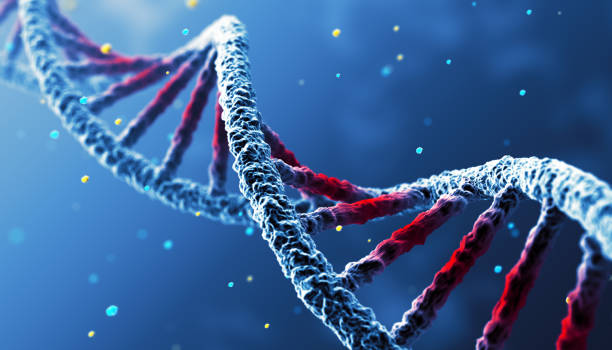The ONE organ responsible for high blood pressure.
Is Hypertension Genetic?

Hypertension, or high blood pressure, means that the force of blood against the artery walls is higher than recommended levels. People with a family history of hypertension are more likely to develop the condition.
In adults, typical blood pressure measures 120/80 millimeters of mercury. Almost half of all adults in the United States have high blood pressure, which puts them at risk of cardiovascular disease, including stroke and heart attack.
Certain factors increase an individual’s risk of developing hypertension, including age, weight, diet, and genetics.
Hypertension is a widespread problem affecting 47% of adults in the U.S. — a figure that amounts to 116 million people. The condition affects 50% of males and 44% of females. However, only 1 in 4 have their hypertension under control. In 2019, the condition caused or contributed to more than 500,000 deaths.
Keep reading to learn more about hypertension, including the role genetics play in its development and other potential risk factors.
Family history of hypertension
Hypertension can run in families because of shared genes, environments, and lifestyle habits. The risk increases even more if an individual with a genetic link to hypertension also engages in unhealthy lifestyle choices.
According to some research, when biological parents and grandparents have hypertension, there is a risk of the same condition occurring in their children and grandchildren. Specifically, the biggest risk is when individuals in a family develop hypertension before the age of 55 years. And this is independent of lifestyle factors, such as physical activity, alcohol intake, and a diet high in salt.
Research in twins and families has suggested that up to 30–50% of the variance in blood pressure readings could be due to family history. It seems that genes play a role in hypertension, and family members can pass these genetic traits from one generation to the next.
However, genes are only part of the reason for heredity hypertension. Another factor is that people who live in common environments may eat the same non-nutritious diet or share habits such as smoking or drinking excessive alcohol. Along with genetics, these factors increase the likelihood of developing hypertension.
The heritability of hypertension is often cited in the range of ≈30% to 60%, with multiple contributory genes; additionally, ethnic and genetic heterogeneity participate in variable clinical presentation and drug response in hypertension, rendering genetic study of this disease a challenging task.
What can someone with a family history of hypertension do to reduce their risk of disease?
If an individual has a family history of hypertension, they should understand the risk factors for the condition and reduce them wherever possible.
Doctors refer to risk factors that someone can change as modifiable. An individual can work with their doctor to lower these risk factors as much as possible. This could involve maintaining a moderate weight, eating a nutritious diet, quitting cigarette smoking if applicable, and drinking less alcohol. Research has found that adhering to a healthy lifestyle has associations with lower blood pressure, regardless of underlying genetic risk.
Besides taking these steps, a doctor may suggest regular blood pressure monitoring so they can assess and address any changes in blood pressure over time.
Other causes of hypertension
Hypertension can occur in people for various reasons. It is important to note that in about 95% of cases, the cause of the condition is unknown.
Health experts do not fully understand what causes primary hypertension, which they also refer to as essential hypertension. In this type, people can develop high blood pressure over time. Additionally, there is no underlying cause for this increase. In contrast, secondary hypertension can result from other disorders that increase blood pressure.
Essential hypertension is complex — many environmental and genetic factors contribute to its development. There are many genetic variations in humans that have links to essential hypertension. Examples might include genes that play a role in regulating the following:
The renin-angiotensin-aldosterone system
This plays a role in regulating blood pressure in the body. Scientists believe that genetic changes in a person might impair their body’s ability to control blood pressure, and hypertension can occur.The lining of blood vessels, or vascular endothelium
Any changes to the genes that contribute to the typical functioning of the lining can lead to a difference in blood vessel structure and impair its abilities. Blood vessels might become narrower, which can result in high blood pressure. Environmental factors can also contribute to the development of hypertension in some people.Some causes can't be prevented, like genetics and age. High blood pressure often runs in families. Genetic risk is complex, probably resulting from a combination of harmful mutations in risk genes and silencing of protective genes. There is nothing we can do to change our genetics, just as we can't stop aging.









